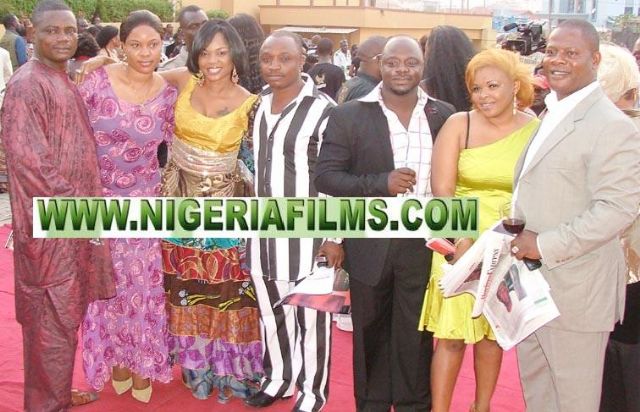
The first stakeholders’ forum on tax incentives for Nigeria’s motion picture industry was held at the Nigerian Film Corporation (NFC) annexe, National Theatre, Lagos on July 15.
The meeting, jointly organised by the NFC and Federal Inland Revenue Services (FIRS), was to enable interested parties to make input into the draft proposal before it is forwarded to government. Filmmakers, independent TV producers, heads of associations and guilds, representatives of the National Film and Video Censors Board (NFCVB) and Federal Inland Revenue Service, were among those at the meeting.
Tax is imperative
Opening the meeting, the managing director of the NFC, Afolabi Adesanya, noted that the era of art patrons and marketers doling out money to filmmakers is gone, hence filmmakers have to explore other means of funding their productions.
He disclosed that the process of drawing up the tax incentives started last year when a committee comprising the NFC and FIRS was inaugurated. The team, he said, was tasked with recommending incentives that will integrate film into the general economic development of the country.
Adesanya added that though the Nigerian film industry has not done badly in the last decade, “it is yet to realise its potentials as creative art and industry. Most policy makers still view film as mere entertainment, thereby underplaying its potential to contribute to our Gross Domestic Product (GDP) and national revenue base.”
He reiterated that the tax incentives, “will create a more vibrant film industry, generate more employment, raise the level of Foreign Direct Investment (FDI) into the sector, generate more revenue and income, boost the pool of funds available for the development of the film industry outside government treasury, and finally, promote socio-cultural development.”
Adesanya explained that stakeholders were invited to complement the work of the committee because an all inclusive approach was needed.
Tex Benibo, executive director, operations, of the NFC, presented some of the proposed incentives to the gathering before Adesoji Omoyele of the FIRS went into the fine details. The official explained that the ministry of finance considers some facts before giving tax incentives. Government, he said, considers the legal basis of the tax relief; ascertains if it is in tandem with the national tax policy; if it has precedence and conforms to global best practices. He disclosed that though government wants to streamline its tax incentives, “this can be pursued.”
No, it is not
The interaction that followed Omoyele’s presentation was spirited, as some of the filmmakers saw nothing beneficial in the proposed reliefs. “Is this tax incentive for us or the Federal Inland Revenue Services? This is an industry that is comatose; a number of people haven’t worked in a year or two. There are some instruments that are supposed to be here but are not. I’m aware that NFC is working on the MOPICCON Bill [Movie Practitioners Council of Nigeria], film fund, and film village, nothing has happened. Some of us are beginning to think the chaos benefits government agencies. How are we going to get this through? Because the NFC and FIRS are involved? Certain structures are needed. We can’t move forward without an industry that is not regulated. What we are doing right now, I don’t think it’s what is needed,” stated Mahmood Ali Balogun.
Bond Emeruwa toed Balogun’s path. “How do you even determine who is a filmmaker and who to tax?” he asked. He added that lack of unity among filmmakers is responsible for the stunted growth of the sector.
For our future
Responding, Adesanya explained that the NFC is committed to the success of the film policy, film fund, MOPICCON bill, and all other proposals to aid the growth of the film industry. He added that work has been slow on the bills because of the high turnover of ministers of information since 2005.
The former photojournalist/ reporter with ‘The Guardian’ stated that the NFC has to start from scratch whenever a new minister is appointed, and that all the bills were resubmitted to the minister of state for information some weeks ago. “We remain committed to these bills. Go and make private enquiries into the state of these bills,” the former general manager of West African Motion Picture Company said.
He also responded to actor Segun Arinze’s question on what the NFC is doing under the ministry of information, instead of culture. “That is one of the dynamics of our society. The law establishing NFC is domiciled in the ministry of information,” he replied. The NFC boss also tried to assure his colleagues with, “We shouldn’t get discouraged. If you live in a dirty environment, you will get malaria. You have to clear your environment first. This exercise is for our future.”
Adesanya’s assurances, however, were not enough for Ali-Balogun, who still asked, “What will stop this from going the way of others? The success of this one is dependent on the other bills.”
“You must register your company if you want to benefit from this. You need to have a corporate identity. You need to play your own vital role to benefit from whatever incentives government gives,” Adesanya reiterated.
Contributing to the discussion, cinematographer Isa Abubakar expressed concern over the rebate on import duties on production equipment. He noted that taxing such equipment does not make sense because lack of equipment is responsible for the poor productions common in Nigeria.
Chris Friend of Video Lounge Nigeria supports paying tax but wants the FIRS to justify why filmmakers should do so. “You must give us something back if you want us to pay tax,” he said, adding that importation of equipment shouldn’t attract any tax.
The stakeholders forum continues in Enugu and Kano.


















